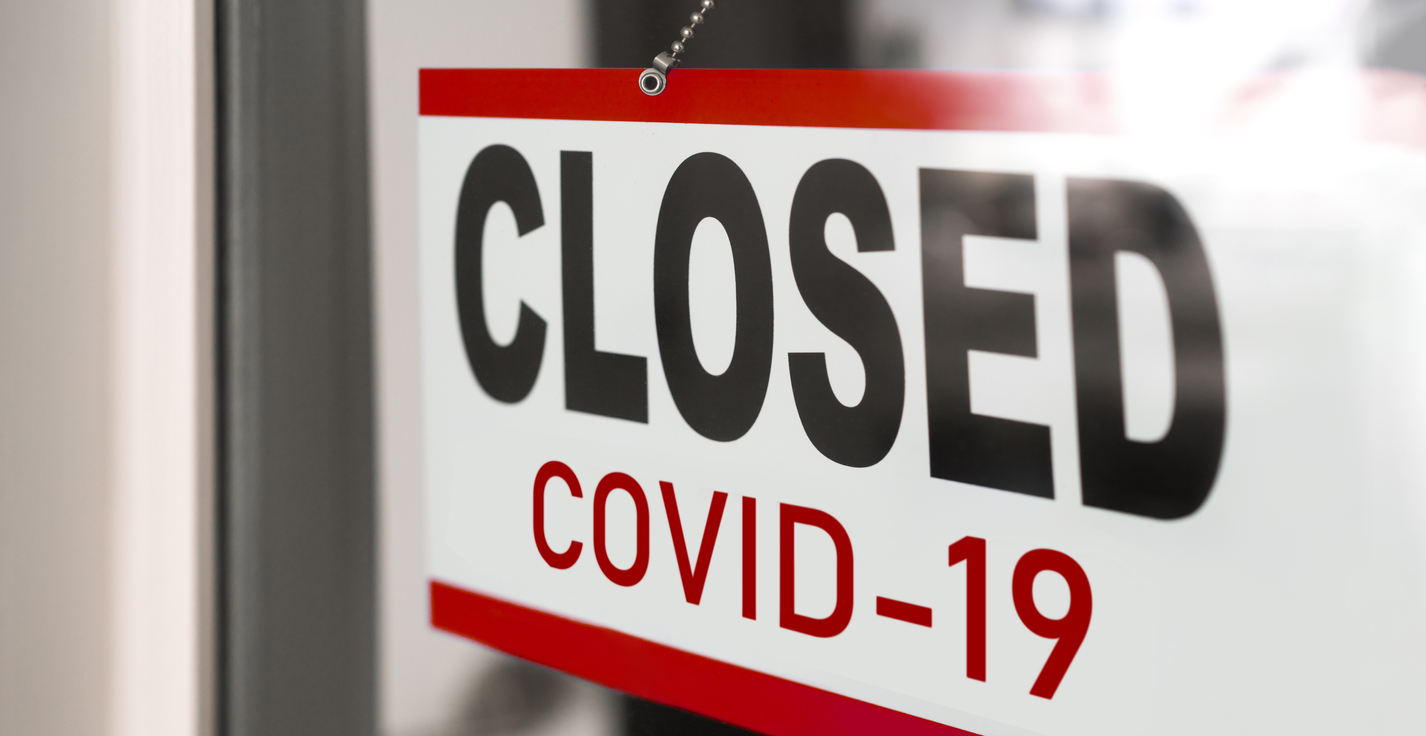Stephen Hasner | News | July 15, 2020

COVID-19 continues to impact businesses across the United States. Atlanta businesses and companies throughout Georgia struggle to remain open. Shutdowns, restrictions, unemployment, and the economy make it difficult for some businesses to continue.
Some business owners might get help to cover income losses by filing a business interruption claim with the insurance provider. The benefits can help pay expenses while a business is closed. It can also help keep business open until conditions improve.
What is Business Interruption Coverage?
Business interruption coverage is a type of insurance coverage you purchase for your business. In most cases, the coverage is a rider or clause included in a liability or casualty policy. As with other insurance policies, the terms and conditions of the insurance policy determine what is covered.
The policies compensate a business for losses of income caused by a covered event. For example, a business has a loss of income because the business had to close to make repairs to the building after a flood.
Some policies also cover certain operating expenses related to the event. The specific benefits and amounts of coverage are determined by the terms and exclusion of the policy.
Examples of the things that a typical business interruption insurance policy may cover include:
- Loss of profits
- Fixed Operating Costs
- Relocating to a Temporary Location
- Replacement of Machinery
- Retraining Employees
- Employee Wages
- Taxes
- Certain Loan Payments
The business can only recover amounts that are lost because of the event. If the company did not lose any money, the policy would not pay benefits to the company. Therefore, careful documentation of all losses is needed when you file a claim with the insurance company.
Does Business Interruption Insurance Cover COVID-19?
There is a good deal of debate about this question right now. Company owners searched for ways to keep their doors open during the coronavirus pandemic. Other companies had to find ways to pay the bills during mandatory shutdowns.
Business owners started filing claims with their insurance providers seeking help. However, there have been problems with claims.
Insurance claims for benefits are treated the same, regardless of why you are filing the claim. An insurance company will find any excuse to deny a claim. This reluctance to pay claims extends to all types of insurance claims, including claims related to:
- Business interruption insurance
- Premises liability
- Medical malpractice
- Car accidents
- Dog attacks
- Construction accidents
- Many more insurance claims
Many insurance companies claim that business interruption insurance does not cover business losses caused by an infectious disease, such as COVID-19. After previous outbreaks of disease that caused claims to increase, many insurance companies added clauses that excluded losses caused by viruses and other diseases.
Civil Authority Coverage Clauses for Business Interruption Insurance
If a business owner added a civil authority clause, the business interruption policy might cover COVID-19 revenue losses. Civil authority coverage applies when a business is shut down by the government. For instance, a local or state official issuing an order to close certain businesses.
The business might receive benefits if it added a civil authority clause to its business interruption coverage. However, some of these clauses require that the business sustain property damage. Therefore, you must read your policy carefully to determine if it applies to a statewide or local shutdown of businesses.
What Can I Do Right Now?
Read your business insurance policy very carefully. Pay close attention to the exclusions and terms. If you have questions, contact an attorney for help.
Other steps that businesses should take to improve their chance of recovering benefits under their business interruption insurance policy:
Mitigate Damages
Most policies require the business to mitigate damages. For instance, a company offers free delivery for customers within their area to encourage online or call-in ordering.
Document Losses
Carefully tract your losses associated with COVID-19. The losses must be a direct result of the pandemic.
Collect Proof and Documentation
Begin pulling together copies of tax returns, balance sheets, bank statements, and other financial records that can be used to support your claim.
Talk to Your Insurance Agent
Contact your insurance agent to discuss your coverage. Ask your agent is the company is approving COVID-19 claims for business interruption coverage. If not, ask your agent to provide a written explanation of why these claims are being denied.
Keep Informed
There is likely to be litigation regarding business interruption insurance claims related to COVID-19 losses. Make sure that you stay informed about the updates and rulings regarding these claims. You can get information about current insurance matters from the Georgia Office of Insurance and Safety Fire Commissioner.
Talk to an Insurance Lawyer
Contact an insurance lawyer to discuss your claim. The attorney can review your policy and advise you of your options for recovering benefits under the terms and conditions of your specific insurance policy.
For more information, please contact the Atlanta personal injury law firm of Hasner Law P.C. at our nearest location to schedule a free consultation today.
We serve in Fulton County, Chatham County, and its surrounding areas:
Hasner Law PC – Atlanta Law Office
2839 Paces Ferry Rd SE #1050
Atlanta, GA 30339
(678) 888-4878
Hasner Law PC – Savannah Law Office
221 W York St
Savannah, GA 31401
(912) 234-2334


